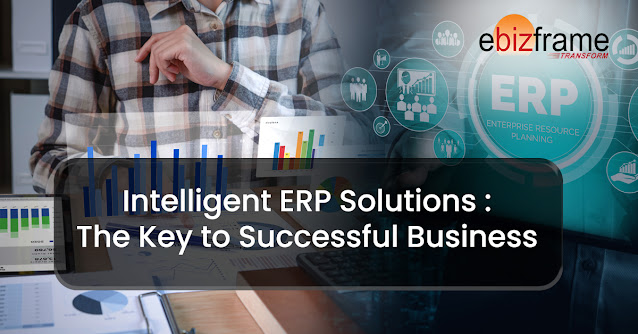4 ERP Software Implementation Success Factors
First, let us briefly discuss “What is an ERP”. The acronym ERP stands for Enterprise Resource Planning. ERP integrates a company’s core processes such as Finance, HR, Manufacturing, etc. into a single system. It enables improved business performance, supports business growth requirements, provides flexible real-time decision support, eliminates limitation in legacy systems, and provides competitive advantage by faster access to accurate and relevant information. Dropping quality standards, delayed shipments, faltering customer satisfaction ratio, inefficiency in data, etc. are some of the dead giveaways that your company is in dire need of an ERP solution.
Choosing the right software is the most important aspect in any ERP project. A company must choose a software that is a perfect fit for its business or requires minimum customization to support key requirements otherwise it will risk overspending on the software and the implementation budget. A diligent ERP software selection process is absolutely imperative to ensure that you select the right ERP for your business.
One of the most important steps to be taken before evaluating any ERP software system you’re your business is to define your business requirements. The internet would give you a tainted picture of ERP implementations by giving accounts of projects gone wrong. In some extreme cases, companies lost money as they couldn’t ship products because the software did not work correctly.
With that said, how does one ensure likelihood of ERP success and ERP benefits realization? Many assume that success or failure is due to the product itself. In reality, though, more than 90% of an ERP project’s success or failure lies in the hands of the company or team implementing the software, not the software vendor.
Below are a few critical ERP implementation success factors:
1. Make a blueprint of business processes and requirements
More often than not, companies get tied-up in the technical capabilities of a software. None of this really matters if it does not serve to increase your business efficiency. What matter is how you want your business operations to run and what your key business processes need to be automated through the ERP. Once these are defined, you can focus on choosing a software that is perfect fit for your business.
2. Strong resource commitment
The success or failure of a large project such as an ERP required a great deal of commitment from your business. It means ensuring that you have a strong project manager(s) to support and participate in the project.
3. Change management
A company needs to pay sufficient attention to change management if it wants the ERP project be a success. It is one of the most overlooked aspects of an ERP implementation. Not being able to manage the change in an organization is perhaps one of the major reasons why ERP implementations fail. You need to ensure that right set of people who are receptive to change are involved in the Core ERP teams.
4. Adequate training
ERP system involves huge changes for people and organization in general. You will not be able to leverage the system’s full potential unless people do not understand how to use it effectively. Thus, spending enough time and money on training, and job design is crucial to any ERP software implementation success.
ebizframe ERP is an internet and web based ERP software that can help you share information between various departments/functions and let them collaborate better and help all of them to move towards common organizational goals. Information in ebizframe, is controlled by restrictions and access rights. So you have full control and decide on “who-sees-what” and “who-does-what”. Over 1300+ enterprises across 25+ countries have benefited tremendously and altered their future by choosing ebizframe ERP Software Systems, its time you too transformed your business with ebizframe.
To reach out to our experts, write to us at marketing@essindia.com



This comment has been removed by a blog administrator.
ReplyDelete